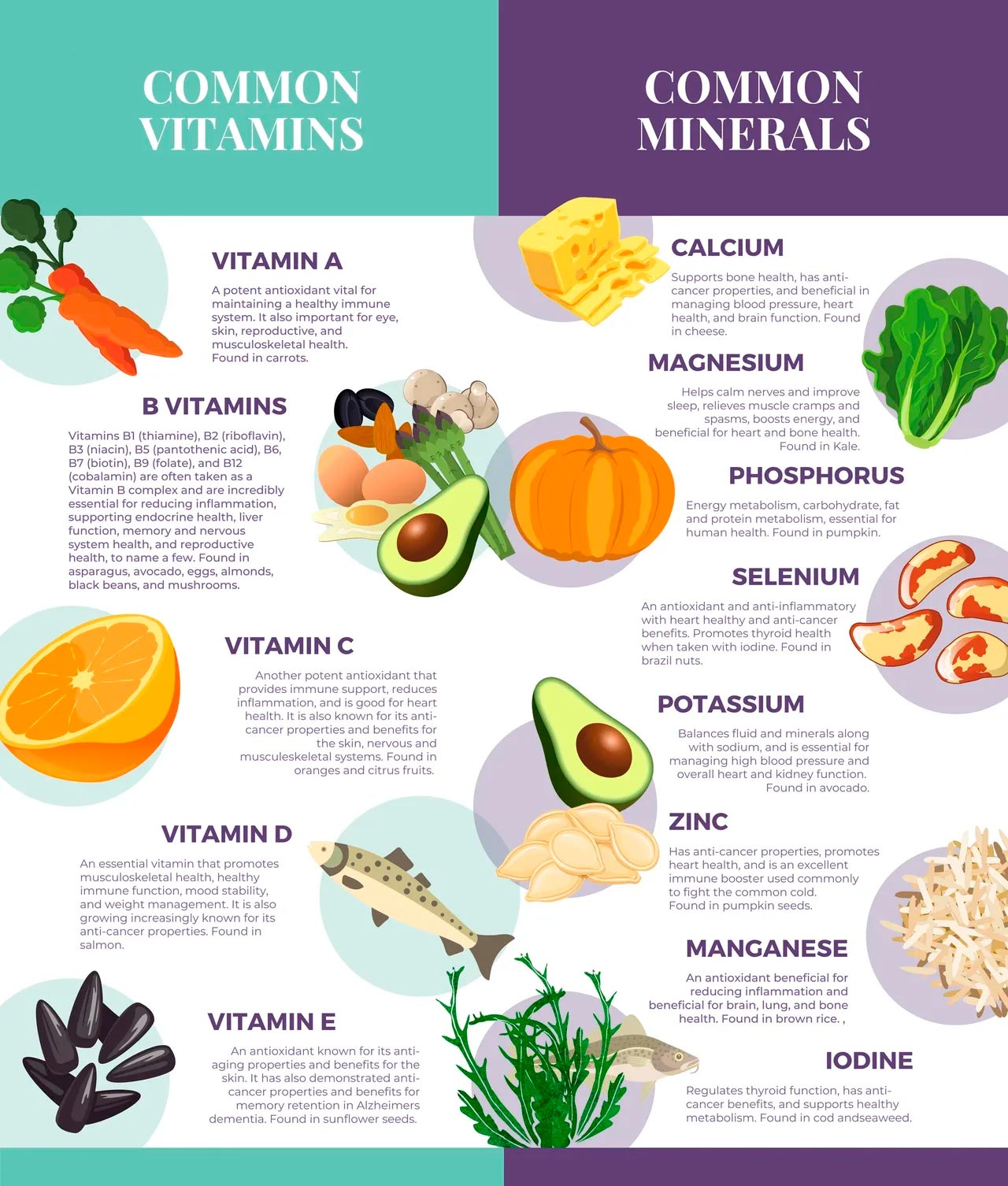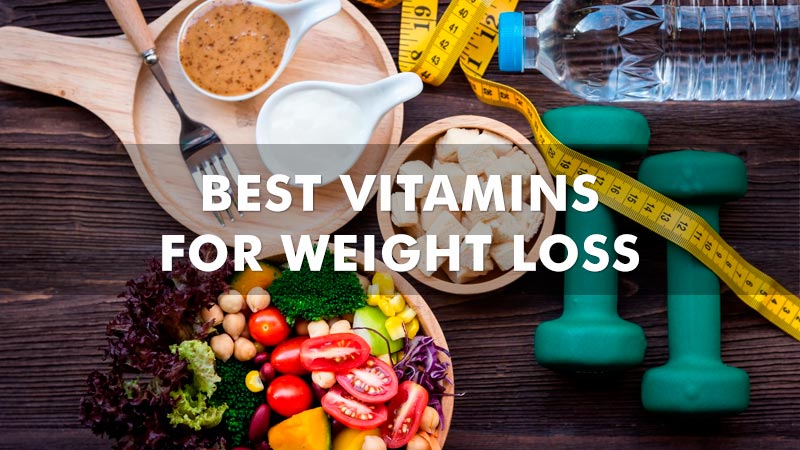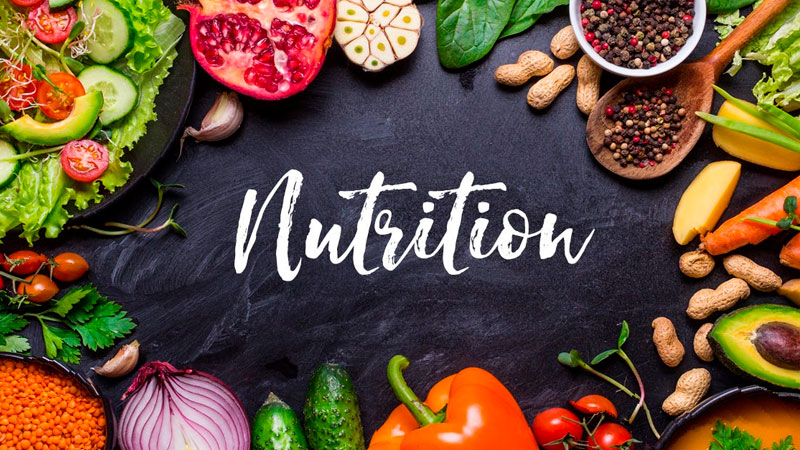Vitamins are essential nutrients that the body needs to function properly. While they don't provide energy like carbohydrates, fats, and proteins, they play a critical role in maintaining overall health.
Table of Contents
Some vitamins are known to help with weight loss, making them an important consideration for those looking to shed some extra pounds.
Vitamins can help with weight loss in a variety of ways. For example, vitamin D has been shown to play a role in regulating appetite and metabolism. Vitamin B12 is important for energy production, which can help support a more active lifestyle. Vitamin C is important for maintaining healthy skin, which can help improve confidence and motivation to stick to a weight loss plan.
In this article, we'll explore some of the key vitamins for weight loss and how they work.
Understanding Weight Loss

Losing weight can be a challenging task, but it is essential for maintaining good health. Understanding the basics of weight loss can help individuals achieve their weight loss goals and improve their overall health.
Weight loss occurs when the body burns more calories than it consumes. This can be achieved by reducing calorie intake, increasing physical activity, or a combination of both. A calorie deficit of 3,500 calories is required to lose one pound of body weight. Therefore, a deficit of 500-1000 calories per day can lead to a weight loss of 1-2 pounds per week.
It is important to note that weight loss is not a linear process and can vary from person to person. Factors such as age, gender, genetics, and lifestyle habits can all affect weight loss. Additionally, weight loss should be achieved through healthy and sustainable methods, rather than quick fixes or fad diets.
Incorporating vitamins into a weight loss plan can be beneficial, as they can help support overall health and aid in weight loss efforts. However, it is important to note that vitamins alone will not lead to significant weight loss. A balanced diet and regular exercise are still the most effective methods for achieving sustainable weight loss.
Weight loss is achieved through a calorie deficit and can vary from person to person. Incorporating vitamins into a weight loss plan can be beneficial, but should not be relied upon as the sole method for achieving weight loss.
The Role of Vitamins in Weight Loss

Vitamins are essential nutrients that the body needs to perform various functions, including maintaining a healthy weight. While vitamins alone cannot cause weight loss, they play a crucial role in supporting the body's metabolism and overall health, which can aid in weight loss efforts.
Vitamin B Complex
The B vitamins, including thiamine, riboflavin, niacin, pantothenic acid, pyridoxine, biotin, folic acid, and cobalamin, are essential for metabolism and energy production. They help the body convert food into energy and support the breakdown of fats and carbohydrates. Vitamin B12, in particular, is essential for healthy metabolism and can aid in weight loss efforts.
Vitamin D
Vitamin D is essential for bone health, but it also plays a role in weight management. Studies have shown that low levels of vitamin D are associated with obesity, and increasing vitamin D intake can help with weight loss. Vitamin D also helps regulate insulin levels, which can aid in weight loss efforts.
Vitamin C
Vitamin C is an antioxidant that supports the immune system and helps the body absorb iron. It also plays a role in weight loss by supporting the body's metabolism and aiding in the breakdown of fats. Studies have shown that increasing vitamin C intake can help with weight loss efforts.
Other Vitamins
Other vitamins, including vitamin E and vitamin K, also play a role in weight management. Vitamin E is an antioxidant that supports the immune system and aids in the breakdown of fats. Vitamin K is essential for blood clotting and bone health, but it also helps regulate insulin levels, which can aid in weight loss efforts.
Overall, while vitamins alone cannot cause weight loss, they play a crucial role in supporting the body's metabolism and overall health, which can aid in weight loss efforts. A balanced diet that includes a variety of vitamin-rich foods, along with regular exercise, is essential for healthy weight management.
Vitamin A and Weight Loss
Sources of Vitamin A
Vitamin A is a fat-soluble vitamin that is found naturally in many foods. Some of the best sources of vitamin A include:
- Liver
- Sweet potatoes
- Carrots
- Spinach
- Kale
- Broccoli
- Apricots
- Mangoes
- Cantaloupe
- Red peppers
In addition to these foods, many dairy products and cereals are fortified with vitamin A.
Benefits of Vitamin A for Weight Loss
Vitamin A plays an important role in maintaining a healthy weight. Here are some of the ways that vitamin A can help with weight loss:
- Boosts metabolism: Vitamin A helps to regulate the production of thyroid hormones, which are responsible for regulating metabolism. This means that getting enough vitamin A can help to boost your metabolism and burn more calories.
- Reduces inflammation: Chronic inflammation has been linked to obesity and other health problems. Vitamin A has anti-inflammatory properties that can help to reduce inflammation and improve overall health.
- Supports healthy vision: Good vision is important for staying active and maintaining a healthy weight. Vitamin A is essential for maintaining healthy eyesight and can help to prevent vision problems that might otherwise limit physical activity.
- Promotes healthy skin: Vitamin A is important for maintaining healthy skin, which is essential for overall health and well-being. When your skin is healthy, you are more likely to feel good about yourself and be motivated to stay active and maintain a healthy weight.
In addition to these benefits, vitamin A is also important for immune function, bone health, and reproductive health. Getting enough vitamin A is essential for maintaining overall health and well-being, and can be especially important for those who are trying to lose weight.
Vitamin B and Weight Loss
Sources of Vitamin B
Vitamin B is a group of water-soluble vitamins that play a crucial role in the body's metabolism, including the metabolism of carbohydrates, fats, and proteins. There are eight different types of Vitamin B, including B1, B2, B3, B5, B6, B7, B9, and B12, each with its unique benefits.
The best sources of Vitamin B include:
- Whole grains
- Leafy green vegetables
- Meat and poultry
- Eggs
- Dairy products
- Nuts and seeds
Benefits of Vitamin B for Weight Loss
Vitamin B is essential for maintaining a healthy weight. It helps the body convert food into energy, which is necessary for physical activity and exercise. Here are some of the benefits of Vitamin B for weight loss:
-
Boosts Metabolism: Vitamin B helps to increase the metabolism of the body, which leads to burning more calories and losing weight.
-
Reduces Appetite: Vitamin B helps to reduce appetite, which can lead to eating fewer calories and losing weight.
-
Increases Energy: Vitamin B helps to increase energy levels, which can lead to more physical activity and exercise, resulting in weight loss.
-
Reduces Stress: Vitamin B helps to reduce stress levels, which can lead to a decrease in cortisol levels, a hormone that can cause weight gain.
In conclusion, Vitamin B is an essential nutrient that plays a crucial role in maintaining a healthy weight. A diet rich in Vitamin B sources can help in weight loss by increasing metabolism, reducing appetite, and providing energy for physical activity and exercise.
Vitamin C and Weight Loss
Sources of Vitamin C
Vitamin C is an essential nutrient that cannot be produced by the body and must be obtained through diet or supplements. Some of the best sources of vitamin C include citrus fruits, such as oranges, grapefruits, and lemons, as well as kiwi, strawberries, guava, papaya, and bell peppers.
Benefits of Vitamin C for Weight Loss
Vitamin C has been shown to have several benefits for weight loss. Firstly, it is a powerful antioxidant that helps protect the body from free radicals, which can damage cells and contribute to chronic diseases. This protection can help keep the body healthy and functioning properly, which is essential for weight loss.
Secondly, vitamin C has been linked to improved metabolism, which can help the body burn calories more efficiently. This is because vitamin C is involved in the production of carnitine, a compound that helps the body convert fat into energy. By increasing the body's ability to burn fat, vitamin C can help with weight loss.
Finally, vitamin C has been shown to help reduce stress, which is important for weight loss. Stress can cause the body to produce cortisol, a hormone that can lead to weight gain and other health problems. By reducing stress levels, vitamin C can help keep cortisol levels in check and promote weight loss.
In conclusion, vitamin C is an important nutrient that can have several benefits for weight loss. By including vitamin C-rich foods in their diet or taking supplements, individuals can support their weight loss goals and improve their overall health.
Vitamin D and Weight Loss
Sources of Vitamin D
Vitamin D is a fat-soluble vitamin that is naturally present in a few foods and is also produced when the skin is exposed to sunlight. Some of the best food sources of vitamin D include fatty fish such as salmon, tuna, and mackerel, as well as fortified foods like milk, orange juice, and cereal. Vitamin D supplements are also available in various forms, including tablets, capsules, and drops.
Benefits of Vitamin D for Weight Loss
Studies have shown that vitamin D may play a role in weight loss. One study found that individuals who took vitamin D supplements lost more weight than those who did not. Another study showed that low levels of vitamin D were associated with increased body fat, while higher levels were associated with lower body fat.
Vitamin D may also help with weight loss by reducing inflammation, which can contribute to obesity. Additionally, vitamin D may improve insulin sensitivity, which can help regulate blood sugar levels and prevent weight gain.
While vitamin D may have some benefits for weight loss, it's important to note that it is not a magic solution. A healthy diet and regular exercise are still the most effective ways to lose weight and maintain a healthy weight.
In conclusion, vitamin D is an important nutrient that may have some benefits for weight loss. It can be obtained from food sources, supplements, and sun exposure. However, it is important to maintain a balanced diet and exercise regularly for optimal weight loss results.
Vitamin E and Weight Loss
Sources of Vitamin E
Vitamin E is a fat-soluble nutrient that can be found in a variety of foods. Some of the best sources of vitamin E include:
- Almonds
- Sunflower seeds
- Spinach
- Avocado
- Sweet potato
- Wheat germ
Benefits of Vitamin E for Weight Loss
Vitamin E has been shown to have a number of benefits for weight loss. Here are a few:
-
Boosts metabolism: Vitamin E has been found to increase metabolic rate, which can help you burn more calories and lose weight.
-
Reduces inflammation: Chronic inflammation has been linked to weight gain. Vitamin E has anti-inflammatory properties that can help reduce inflammation in the body.
-
Improves insulin sensitivity: Vitamin E has been shown to improve insulin sensitivity, which can help regulate blood sugar levels and prevent insulin resistance.
-
Enhances exercise performance: Vitamin E has been found to improve exercise performance, which can help you burn more calories during your workouts.
Overall, getting enough vitamin E in your diet can be beneficial for weight loss. Incorporating foods that are high in vitamin E into your meals and snacks can help you reach your weight loss goals.
Vitamin K and Weight Loss
Sources of Vitamin K
Vitamin K is a fat-soluble vitamin that is essential for the proper functioning of the body. It is found in a variety of foods, including leafy green vegetables, such as kale, spinach, and collard greens, as well as in some fruits, such as blueberries and figs. Other sources of vitamin K include dairy products, meat, and eggs.
Benefits of Vitamin K for Weight Loss
Vitamin K has several benefits for weight loss. One of the main benefits is that it helps to regulate blood sugar levels. This is important because high blood sugar levels can lead to weight gain and obesity. Vitamin K helps to regulate blood sugar levels by increasing insulin sensitivity.
Another benefit of vitamin K for weight loss is that it helps to regulate the metabolism. A healthy metabolism is essential for weight loss because it helps the body to burn calories more efficiently. Vitamin K helps to regulate the metabolism by activating a protein called osteocalcin, which is involved in the regulation of energy metabolism.
Finally, vitamin K helps to reduce inflammation in the body. Inflammation is a major contributor to weight gain and obesity. Vitamin K helps to reduce inflammation by inhibiting the production of pro-inflammatory cytokines.
Overall, incorporating vitamin K-rich foods into your diet can be beneficial for weight loss. However, it is important to note that vitamin K alone is not a magic solution for weight loss. A healthy diet and regular exercise are still the most effective ways to achieve and maintain a healthy weight.
Precautions When Using Vitamins for Weight Loss

When using vitamins for weight loss, it is important to keep in mind a few precautions to ensure safety and effectiveness. Here are some things to consider:
1. Consult a healthcare professional
Before starting any vitamin regimen for weight loss, it is important to consult a healthcare professional. They can help determine if the vitamins are safe for the individual and if they will interact with any medications the person may be taking.
2. Follow recommended dosages
Taking too much of any vitamin can be harmful to the body. It is important to follow the recommended dosages on the label or as directed by a healthcare professional.
3. Use vitamins as a supplement, not a replacement
Vitamins should be used as a supplement to a healthy diet and exercise routine, not as a replacement. It is important to maintain a balanced diet and exercise regularly to achieve weight loss goals.
4. Be aware of potential side effects
Some vitamins may have potential side effects, such as nausea, headaches, or upset stomach. It is important to be aware of these potential side effects and discontinue use if they occur.
5. Avoid relying solely on vitamins for weight loss
While vitamins may aid in weight loss, they should not be relied on solely for weight loss. A healthy lifestyle including a balanced diet and regular exercise is key to achieving and maintaining weight loss goals.
By following these precautions, individuals can safely and effectively use vitamins as a supplement to aid in their weight loss journey.
Conclusion
In conclusion, vitamins can play a role in weight loss, but they are not a magic solution on their own. It is important to remember that a healthy diet and regular exercise are the foundation of any weight loss plan.
While some vitamins, such as B vitamins and vitamin D, have been shown to potentially aid in weight loss, it is important to consume them as part of a balanced diet and not rely on supplements alone.
Additionally, it is important to consult with a healthcare professional before starting any new vitamin or supplement regimen, as excessive intake of certain vitamins can be harmful.
Overall, incorporating a variety of nutrient-dense foods into one's diet, as well as engaging in regular physical activity, is the most effective way to achieve and maintain a healthy weight. Vitamins can certainly play a role in supporting this goal, but they should not be relied upon as the sole solution.
Eat well, live better!




